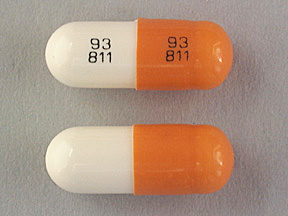
Pamelor Coupons & Savings Card – Discount Prices from $12.90
Brand for: Nortriptyline
My prescription
Edit
25MG, Nortriptyline (30 Capsules)
Select pharmacy

CVS
$21.03
COUPON PRICE
Walgreens
$12.90
COUPON PRICE
Albertsons
$13.84
COUPON PRICE
Walmart
$17.49
COUPON PRICEPamelor savings card
Show this card to your pharmacist
Walgreens
$12.90
BIN
ID
PCN
GRP
019876
LH89F2A8A6
CHIPPO
LHX
Powered by
Related tricyclic antidepressants prescriptions
More prescriptions for depression
Related tricyclic antidepressants prescriptions
More prescriptions for depression
Pamelor (Nortriptyline) dosage forms
Dosage Quantity Price from Per unit 10MG 1 Capsule $9.09 $9.09 10MG 20 Capsules $10.89 $0.54 10MG 30 Capsules $11.84 $0.40 10MG 45 Capsules $13.26 $0.29 10MG 50 Capsules $13.74 $0.28 10MG 60 Capsules $14.68 $0.24 10MG 90 Capsules $25.65 $0.28 10MG 100 Capsules $26.83 $0.27 10MG 120 Capsules $29.20 $0.24 10MG 500 Capsules $55.50 $0.11
| Dosage | Quantity | Price from | Per unit |
|---|---|---|---|
| 10MG | 1 Capsule | $9.09 | $9.09 |
| 10MG | 20 Capsules | $10.89 | $0.54 |
| 10MG | 30 Capsules | $11.84 | $0.40 |
| 10MG | 45 Capsules | $13.26 | $0.29 |
| 10MG | 50 Capsules | $13.74 | $0.28 |
| 10MG | 60 Capsules | $14.68 | $0.24 |
| 10MG | 90 Capsules | $25.65 | $0.28 |
| 10MG | 100 Capsules | $26.83 | $0.27 |
| 10MG | 120 Capsules | $29.20 | $0.24 |
| 10MG | 500 Capsules | $55.50 | $0.11 |
| 25MG | 30 Capsules | $12.90 | $0.43 |
| 25MG | 1 Capsule | $9.13 | $9.13 |
| 25MG | 20 Capsules | $11.60 | $0.58 |
| 25MG | 28 Capsules | $12.64 | $0.45 |
| 25MG | 45 Capsules | $14.85 | $0.33 |
| 25MG | 50 Capsules | $15.50 | $0.31 |
| 25MG | 60 Capsules | $16.80 | $0.28 |
| 25MG | 90 Capsules | $29.70 | $0.33 |
| 25MG | 100 Capsules | $31.00 | $0.31 |
| 25MG | 120 Capsules | $33.60 | $0.28 |
| 25MG | 180 Capsules | $41.40 | $0.23 |
| 25MG | 270 Capsules | $50.87 | $0.19 |
| 25MG | 500 Capsules | $71.80 | $0.14 |
| 50MG | 1 Capsule | $9.17 | $9.17 |
| 50MG | 15 Capsules | $11.54 | $0.77 |
| 50MG | 20 Capsules | $12.38 | $0.62 |
| 50MG | 30 Capsules | $14.07 | $0.47 |
| 50MG | 50 Capsules | $17.45 | $0.35 |
| 50MG | 60 Capsules | $19.14 | $0.32 |
| 50MG | 90 Capsules | $33.21 | $0.37 |
| 50MG | 100 Capsules | $34.90 | $0.35 |
| 50MG | 500 Capsules | $80.20 | $0.16 |
| 75MG | 30 Capsules | $7.72 | $0.26 |
| 75MG | 60 Capsules | $12.94 | $0.22 |
| 75MG | 90 Capsules | $24.66 | $0.27 |
| 75MG | 100 Capsules | $26.40 | $0.26 |
| 75MG | 500 Capsules | $96.00 | $0.19 |
What is the drug Pamelor used for?
Pamelor, which is the brand name for nortriptyline, is primarily used to treat depression. It may also be prescribed for other conditions such as chronic pain or to help with smoking cessation, depending on the patient's specific needs and the doctor's discretion.
Does Pamelor make you gain weight?
Pamelor (nortriptyline) can potentially cause weight gain as a side effect. However, not everyone will experience this, and the extent of weight gain can vary among individuals. It is important for patients to discuss any concerns about side effects with their healthcare provider.
What is the most common side effect of nortriptyline?
The most common side effect of nortriptyline is dry mouth.
Who should not take Pamelor?
Pamelor, also known as nortriptyline, should not be taken by individuals who have recently had a heart attack, as it may pose risks to their health. It is also contraindicated in patients who are taking monoamine oxidase inhibitors (MAOIs) or have taken them in the last 14 days due to the risk of serious drug interactions. Additionally, individuals with a known hypersensitivity to nortriptyline or any of its components should avoid using this medication. It is important for patients to consult with their healthcare provider to determine if Pamelor is safe for them, especially if they have a history of heart conditions, seizures, or other significant medical issues.
Is nortriptyline a strong painkiller?
Nortriptyline is not primarily classified as a strong painkiller. It is a tricyclic antidepressant that is sometimes used off-label to help manage certain types of chronic pain, such as neuropathic pain. However, it is not typically used for acute pain relief like traditional painkillers.
